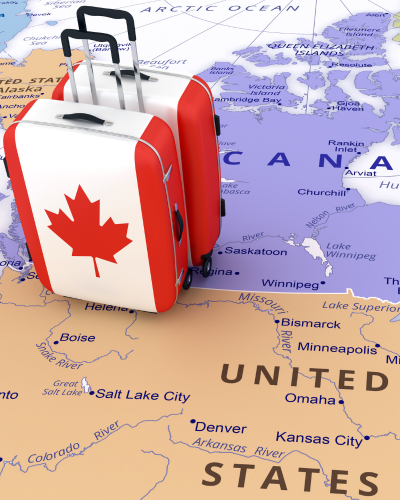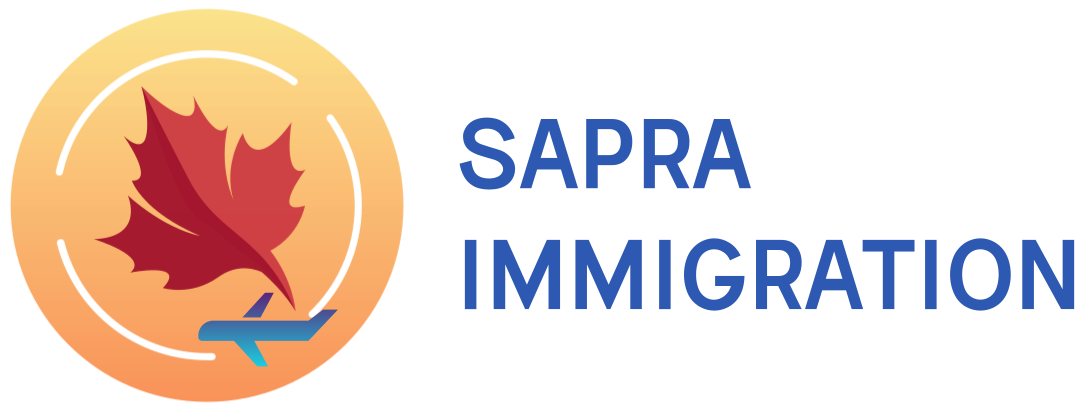Canada provides protection to people fleeing persecution, danger, and violence – offering a fair and humane pathway to safety and permanent residence.

Understanding Canada’s Refugee System
Canada has a long-standing humanitarian tradition of protecting individuals at risk. The refugee protection system includes two core programs:
A. In-Canada Asylum Program
For individuals already in Canada who are seeking protection from return to a country where they face persecution or risk to life, security, or freedom.
B. Refugee Resettlement Program
For individuals outside Canada who are selected and referred by the UNHCR or a designated sponsor for permanent resettlement to Canada.
In-Canada Asylum
You may be eligible to make an asylum claim in Canada if you:
● Are inside Canada and not subject to a removal order
● Have a well-founded fear of persecution based on race, religion, political opinion, nationality, or membership in a particular social group
● Are at risk of torture or cruel and unusual treatment if returned to your countryn
Where to Apply:
● At a port of entry (airport, land border, seaport)
● At an IRCC inland office by appointment
Next Steps:
● If found eligible, your case is referred to the Immigration and Refugee Board (IRB)
● You may apply for an open work permit or study permit while awaiting your decision
Resettlement from Outside Canada
A. Government-Assisted Refugees (GARs): Referred by the United Nations Refugee Agency (UNHCR) and supported financially by the federal government for up to one year.
B. Privately Sponsored Refugees (PSRs) : Sponsored by private individuals, Sponsorship Agreement Holders (SAHs), or Groups of Five Canadian citizens or permanent residents.
C. Blended Visa Office-Referred (BVOR) Refugees : A shared model between IRCC and private sponsors. Refugees are referred by the UNHCR and receive both government and private sponsor support.
Note: Individuals cannot apply directly for resettlement. They must be referred by a designated organization or sponsor.
Note: Individuals cannot apply directly for resettlement. They must be referred by a designated organization or sponsor.
Refugee Sponsorship Options
There are three types of refugee sponsorship groups:
| Sponsor Type | Description |
| SAHs | Sponsorship Agreement Holders — organizations authorized to resettle refugees regularly |
| Groups of Five | Five or more Canadian citizens or PRs who sponsor one or more named refugees |
| Community Sponsors | Associations or organizations not registered as SAHs who can sponsor on a case-by-case basis |
Responsibilities:
All sponsors must provide financial support, housing, and settlement assistance for up to 12 months.
Safe Third Country Agreement (STCA)
Canada and the United States share a Safe Third Country Agreement (STCA). This agreement requires refugee claimants to seek asylum in the first safe country they arrive in.
As a result, most individuals coming from the U.S. cannot make a refugee claim at the Canadian border, unless they meet one of the STCA exceptions.
STCA Exceptions Include:
● You have a close family member in Canada (e.g., spouse, parent, child, grandparent, sibling, uncle/aunt, niece/nephew)
● You are a minor under 18 not accompanied by a legal guardian
● You hold a valid Canadian visa or travel document
● You face the death penalty in the U.S. or your home country
Legal Note: If unsure whether you qualify for an exception, seek professional immigration advice before arriving at the border.
Recent Developments (2025)
● The number of asylum claims in Canada has declined in early 2025 due to visa restrictions and new public awareness campaigns
● The Government of Canada is deporting more failed claimants, with over 7,300 deportations completed by November 2024
● Overseas refugee resettlement remains active through UNHCR referrals and sponsor groups, though processing times vary
No. Refugee resettlement from abroad requires a referral by UNHCR or a private sponsorship group.
Yes. If your asylum claim is found eligible, you may apply for an open work permit or study permit.
You may be able to appeal to the Refugee Appeal Division or apply for a Pre-Removal Risk Assessment (PRRA) depending on your situation.
Processing times vary. Inland claims referred to IRB may take several months or longer. Resettlement processing may take over a year.
Yes. You can include your spouse and dependent children, whether they are in Canada or abroad
Need Guidance on Refugee or Asylum Options in Canada?
Whether you are in Canada or abroad, Sapra Immigration provides RCIC-led support on refugee claims, STCA eligibility, and private sponsorship options. We help you understand your rights and prepare the strongest possible case.
